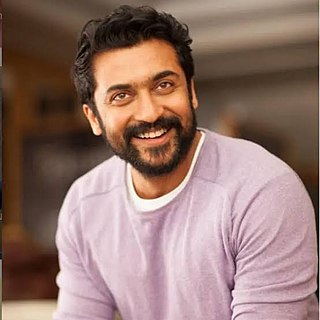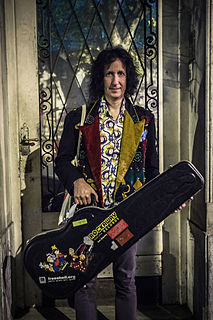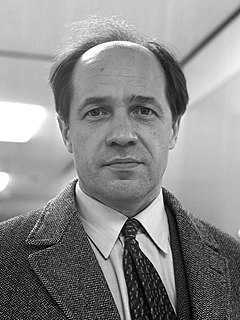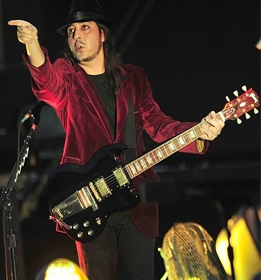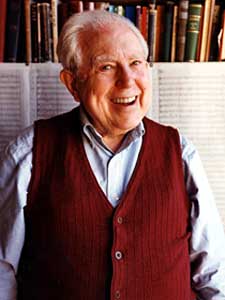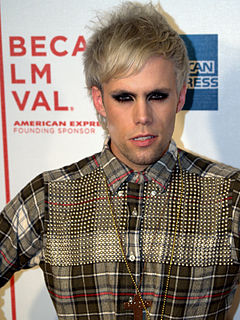A Quote by Per Petterson
I was born in 1952, so obviously the sixties were important. That's when I came of age. It was also a revolutionary period, a complete break with the generation before us in terms of culture, literature, music, and in politics, of course. 1968 was an important year; I was 16, and the world became clear to me, visible, so to say.
Related Quotes
I'm going to be very clear in everything we do. I believe the special relationship is important to us, it's important more widely across Europe and the world. But I will also be very clear in the decisions I take and the conversations I have about UK interests. I'm not going to say anything different to Donald Trump to what I'm saying to you in terms of UK interests and where those lie.
Argentina is a very interesting culture because unlike Europe and the US, they did not abandon rock and roll music, they did not turn their backs on it. It's an important part of their culture. So guitar music is an important part of their culture. So me being into rock music, I get respect working there, which wasn't happening in Europe or in the US.
It became obvious to me that the generation who changed the world were my parents' generation, and not only in terms of the Second World War, but if you look at all the social legislation of the '60s - abortion, homosexual law reform, equal pay - it wasn't done by my generation; it was done by people who were adults.
My falling in love with spoken word poetry definitely came out of that time period where all the adults around me were failing to supply me with any answers. Everyone was too busy dealing with things that were more important. I was pretty lost and invisible. And all of a sudden, this world opened up where I could get on stage and perform in front of my peers. People would listen to me and see me, and people would say, "That thing you created was important." And that was so validating and necessary at that specific moment.
[The strike in 1968] brought us together with teachers and also with progressive whites. All of us came from diverse backgrounds, but at the same time the reasons why we were at San Francisco State in the late sixties was because of the agitation and movement building that had occurred within our communities. We saw ourselves not separate from the community but intimately connected to it.
It's important not to take yourself too seriously, ... and I think sometimes people take us a lot more seriously than we take ourselves, especially when it comes to politics. Politics, for me, is a reflection of the world I live in. But love is just as important as politics to me. They both exist in the world, you know? And if you don't reflect the entire world around you, then you're leaving something out.
Once you know what you want and what is important for you to achieve, also define the values associated with it. What is important? That is something a lot of entrepreneurs pass by too quickly. For us, the things that were important were, No. 1, customer success. Nothing is more important to us than making sure every customer is successful in our service.
Many teachers of the Sixties generation said "We will steal your children", and they did. A significant part of America has converted to the ideas of the 1960s - hedonism, self-indulgence and consumerism. For half of all Americans today, the Woodstock culture of the Sixties is the culture they grew up with - their traditional culture. For them, Judeo-Christian culture is outside the mainstream now. The counter-culture has become the dominant culture, and the former culture a dissident culture - something that is far out, and 'extreme'.
There’s a real question as to what beauty is and why it’s important to us. Many pseudo-philosophers try to answer these questions and tell us they’re not really answerable. I draw on art and literature, and music in particular, because music is a wonderful example of something that’s in this world but not of this world. Great works of music speak to us from another realm even though they speak to us in ordinary physical sounds.


